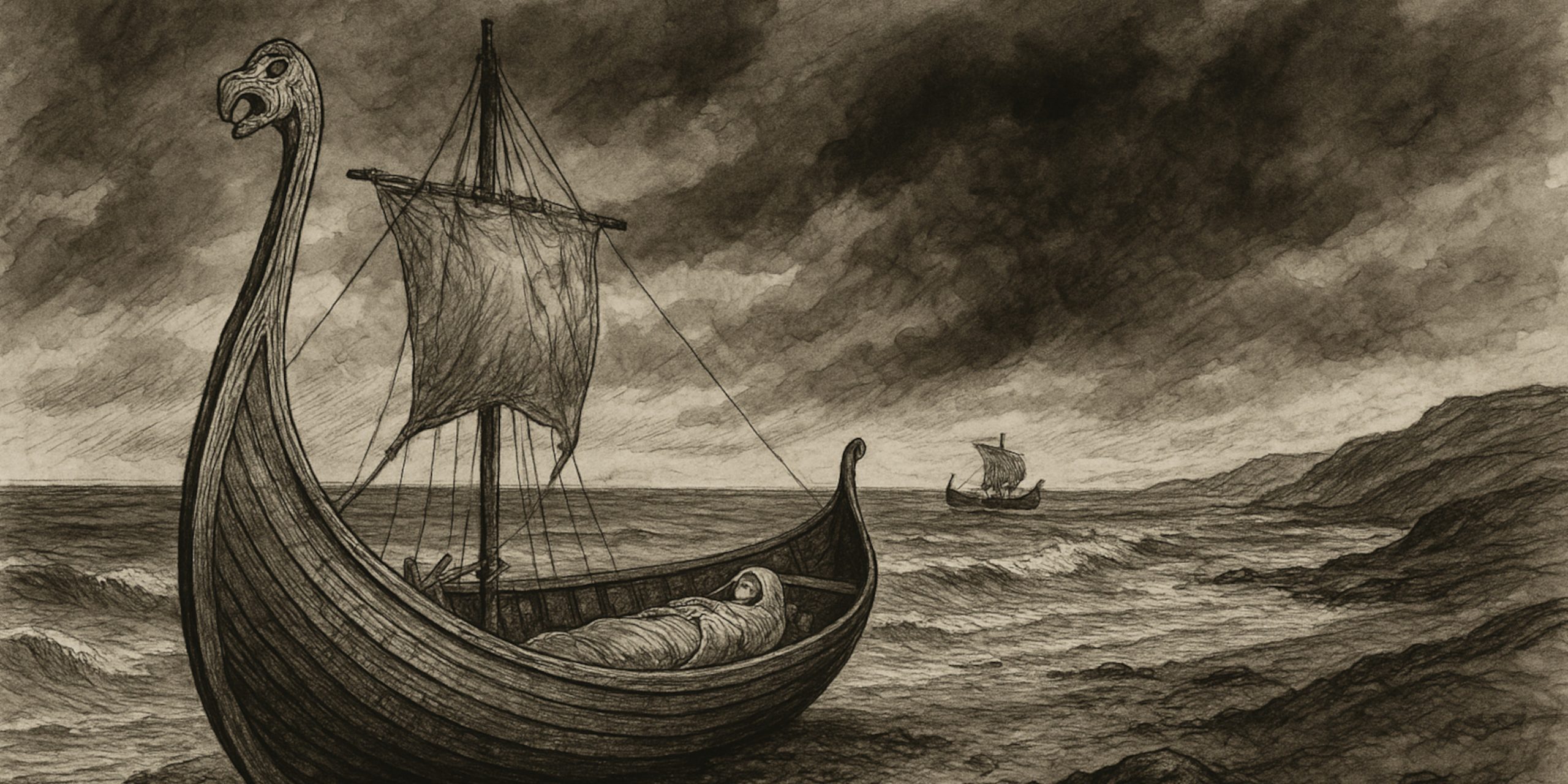
Aud the Deep-Minded, also known as Auðr djúpúðga, was one of the most remarkable women of the Viking Age. Remembered for her wisdom, leadership, and independence, she carved out a lasting legacy in both Norse sagas and Icelandic history. Unlike many Viking figures known primarily for warfare, Aud is celebrated for her ability to build communities, maintain kinship networks, and lead migrations across the North Atlantic.
Early Life and Background
Aud was the daughter of Ketill Flatnose, a powerful chieftain of the Isles in Scotland. Through her family ties, she was connected to several important Norse clans, linking her to both Norwegian and Scottish nobility. She married Olaf the White, a Norse king of Dublin, strengthening her position as both a political and cultural figure.
When her husband died in battle, Aud’s role shifted from queen consort to matriarch and leader. Widowed and with her son Thorstein the Red taking up the mantle of rulership, she demonstrated resilience by navigating the turbulent world of late 9th-century power struggles.
Migration and Leadership
After the death of her son Thorstein in battle, Aud organised one of the most famous migrations of the Viking Age. She commissioned the building of a large knarr (a sea-going vessel) and gathered her household, freedmen, and allies. This ship carried her across the seas from Scotland and the Hebrides to the Faroe Islands, Orkney, and eventually Iceland.
What makes her voyage significant is that it was not a raid but a resettlement. She was responsible for establishing new communities, distributing land, and securing the survival of her people in a new land. In Iceland, she is credited with founding several settlements, particularly in the west of the island.
Personality and Reputation
Aud earned the epithet “Deep-Minded” due to her reputation for foresight, careful planning, and wisdom. The sagas describe her as dignified and independent, a woman who held authority even in a male-dominated society. She is often portrayed as a Christian, which was unusual for her time, and her burial in an unmarked ship at Hvamm is sometimes interpreted as evidence of her unique spiritual stance within a pagan world.
Legacy in Iceland
Aud’s impact on Icelandic society was profound. She is remembered as one of the founding figures of Iceland, her descendants becoming part of the powerful families that shaped the island’s early history. Her story, preserved in texts like Laxdæla saga and Landnámabók (The Book of Settlements), highlights the role of women not just as companions to male adventurers but as leaders and decision-makers in their own right.
Archaeological and Cultural Memory
While direct archaeological evidence of Aud’s life is limited, the sagas and historical texts provide a narrative that has shaped Icelandic identity. Her burial site at Hvamm in western Iceland remains a place of historical interest, symbolising both her seafaring journey and her role as a bridge between cultures.
In modern scholarship and popular culture, Aud is frequently discussed as an example of how Norse women could hold power and autonomy. Her story stands alongside other legendary Viking women, reminding us that leadership in the Viking world was not exclusively male.
The Seven Swords Takeaway
Aud the Deep-Minded stands out as a leader who navigated personal tragedy, political uncertainty, and the dangers of migration to secure a lasting future for her kin. Her foresight and authority ensured that her legacy endured in both Icelandic tradition and wider Norse memory. She remains one of the clearest examples of female leadership in the Viking Age, embodying resilience, wisdom, and independence.
Watch the documentary:










